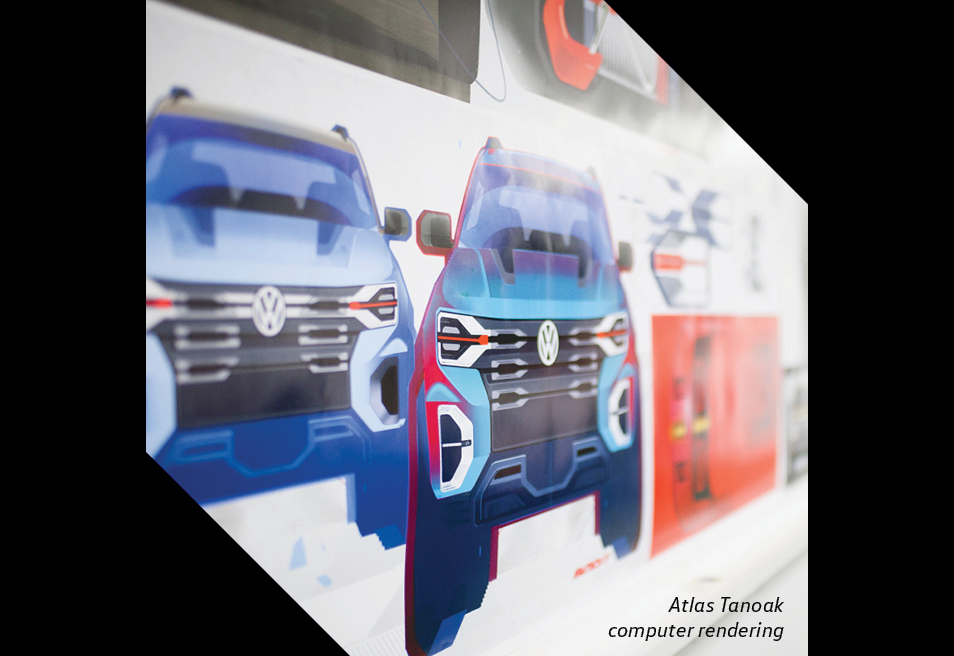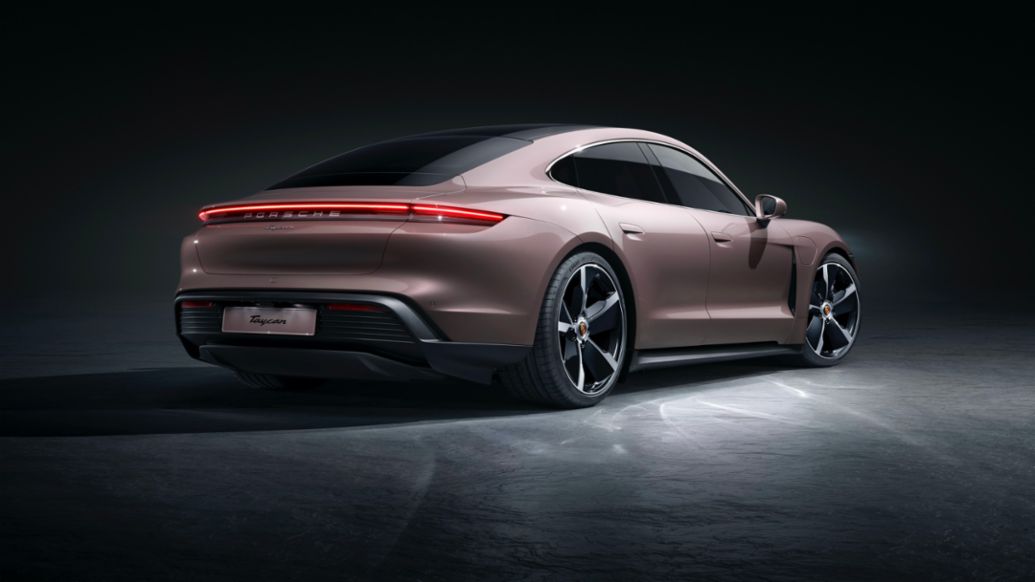(Bloomberg) — Near-sighted planning, supply-chain complexities and a tradition of keeping inventories low caused the semiconductor shortage that is now forcing carmakers to idle production lines and straining their relationship with chip manufacturers. Seeds of the imbroglio were sown almost a year ago as the virus outbreak led to plunging car demand, prompting auto-chip companies… Continue reading A Year of Poor Planning Led to Carmakers’ Massive Chip Shortage
Tag: VW
@VW Group: Proof of Concept One Volkswagen model shows how concept becomes reality.
One Volkswagen model shows how concept becomes reality. When the seven-passenger CrossBlue concept made its debut in 2013, it was hailed as the next step in the expanding, well-rounded family of SUVs offered by Volkswagen. Over the next few years, however, VW designers and engineers took the CrossBlue concept and modified it, adding more room… Continue reading @VW Group: Proof of Concept One Volkswagen model shows how concept becomes reality.
@VW Group: Porsche extends the Taycan model range
With the standard Performance Battery, the new entry-level model delivers up to 300 kW (408 PS; Taycan with Performance Battery: Fuel consumption combined 0 l/100 km, CO2 emissions combined 0 g/km, Electricity consumption combined 28.0 kwh/100 km) in overboost mode with Launch Control; this increases to an output of up to 350 kW (476 PS;… Continue reading @VW Group: Porsche extends the Taycan model range
German Handelsblatt: VW: Volkswagen expects strong growth in China – but the lack of chips is slowing down 001131
Volkswagen in China The Volkswagen Group also wants to benefit from the strong growth in electromobility in China. (Photo: dpa) Beijing With the recovery of the Chinese economy, the Volkswagen Group expects “considerable growth” in its most important market this year. China boss Stephan Wöllenstein also expects the market share to increase. “There are good… Continue reading German Handelsblatt: VW: Volkswagen expects strong growth in China – but the lack of chips is slowing down 001131
Audi aims to sell one million cars in China in 2023
By Reuters Staff 1 Min Read FILE PHOTO: A logo of the German car manufacturer Audi is pictured at a dealership in Kiev, Ukraine June 9, 2020. REUTERS/Valentyn Ogirenko BEIJING (Reuters) – German premium automaker Audi aims to sell 1 million vehicles in China in 2023, versus 726,000 vehicles in 2020, the brand’s China chief… Continue reading Audi aims to sell one million cars in China in 2023
@VW Group: Volkswagen Group strengthens quality assurance – Frank Welsch to lead the new unit
The Volkswagen Group has strengthened and simultaneously reorganized its quality assurance. To this end, Frank Welsch will become the new Head of Group Quality Management and Strategy as of February 1. In this function, he will report directly to the Chief Executive Officer of the Volkswagen Group, Herbert Diess. Thomas Ulbrich will succeed Welsch as… Continue reading @VW Group: Volkswagen Group strengthens quality assurance – Frank Welsch to lead the new unit
@VW Group: New member of the Board of Management for Development at Volkswagen Passenger Cars
Thomas Ulbrich, member of the Board of Management for Mobility at Volkswagen Passenger Cars, is to become member of the Board of Management for Development as of February 1. He will succeed Frank Welsch in this role, who is taking over as Head of the realigned Group Quality Assurance. Following the successful market entry of… Continue reading @VW Group: New member of the Board of Management for Development at Volkswagen Passenger Cars
@VW Group: New dual leadership at Audi Sport GmbH
An important new addition at Audi Sport GmbH: Dr. Sebastian Grams will complete the management team at the Audi high-performance operation starting March 1. He is assuming the helm of the subsidiary together with Managing Director Julius Seebach. Grams succeeds Oliver Hoffmann, who has headed Technical Development at Audi as Chief Operating Officer since July… Continue reading @VW Group: New dual leadership at Audi Sport GmbH
@VW Group: Audi México cleans 100 million liters of water
Audi México is putting sustainability into practice under its Mission:Zero strategy, which aims to make its operations carbon neutral by 2025. The plant in San José Chiapa is firmly on its way to clean and smart production, which is why it takes advantage of the latest technologies in all areas of production. Audi México produces… Continue reading @VW Group: Audi México cleans 100 million liters of water
New Electric Car Battery Charges in Just Five Minutes
Hot Minute A factory in China has manufactured a car battery that can be charged completely in just five minutes, The Guardian reports. The batteries were developed by Israeli company StoreDot and built by Chinese manufacturer Eve Energy. There is one big catch, however: While the batteries can technically be fully charged in just five… Continue reading New Electric Car Battery Charges in Just Five Minutes

